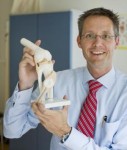
Ankylosing spondylitis
Marijuana’s potential for treating arthritis
A compound in marijuana – tetrahydrocannabinol (THC) – may be beneficial in treating those with autoimmune disorders, says research published in the Journal of Biological Chemistry.
The study from the University of South Carolina is the first to explore how tiny, yet powerful molecules called microRNAs are influenced by THC. MicroRNAs plan a vital role in gene expression; they act as brakes that target over 60% of gene expression. Being able to alter microRNA expression could hold the key to successful treatments for a whole host of autoimmune diseases, including arthritis. Continue reading
Drinking extra milk as a teen may not mean hip fracture benefits later
Doubt has been cast on the theory that drinking plenty of milk early in life can help people avoid bone fractures later down the line in a large US study published in JAMA Pediatrics.
The association between teenage milk consumption and risk of hip fracture at older ages was examined in a study of more than 96,000 people with a follow-up of over 22 years.
There was no link between teenage milk consumption levels and hip fracture frequency in women. But men who drank a lot of milk between 13 years and 18 years actually saw an increased risk of hip bone injuries. Every additional glass of milk per day as a teenager was associated with a 9% higher risk among males. The association was influenced by height.
“We did not see an increased risk of hip fracture with teenage milk consumption in women as we did in men,” says Dr Diane Feskanich, who led the work. “One explanation may be the competing benefit of an increase in bone mass with an adverse effect of greater height.
“Women are at higher risk for osteoporosis than men, hence the benefit of greater bone mass balanced the increased risk related to height.”
The message is that drinking milk during adolescence is recommended to achieve peak bone mass, but it can lead to greater height too, which is a risk factor for hip fracture.
More research is on the menu
To read the original research visit http://archpedi.jamanetwork.com/article.aspx?articleid=1769138.
One-step cartilage repair for knee injuries

Prof Daniel Saris led the pioneering cartilage treatment
The world’s first one-step repair operation for damaged knee cartilage is on the menu at a University Medical Centre in the Netherlands. The procedure involves removing cartilage cells from the damaged knee and mixing them with specially selected donor stem cells. This cell mixture is then applied to the damaged area in the knee during the same operation.
It means that only one procedure is required instead of the usual two operations at an interval of three months. And costs could fall by as much as 75%. Continue reading
Postcode lottery for hip fracture hospital care
The quality of NHS care provided to people with hip fracture varies around the country and some areas are underperforming, says data from the National Hip Fracture Audit for 2013.
Every year over 60,000 elderly people are admitted to wards in England because of a hip fracture, and about 5,000 die within 30 days.
In the best performing hospitals 2% of people die within a month, compared to 13% of people in the lowest-ranking hospitals, reveal the figures from the British Orthopaedic Association and the British Geriatrics Society. Continue reading
Chronic pain is relieved by laughter suggests new study
Laughter can help those with chronic pain, says research presented at The European Pain Federation Congress, held in Florence, Italy.
Swiss scientists found that people laughing at comedy films could keep their hands in ice water longer than those who were not laughing. And the increased pain tolerance remained 20 minutes after laughing.
It could be that humour activates the release of endorphins and relieves muscular tension and so has a subsequent effect on pain on mental and physical level. Continue reading
